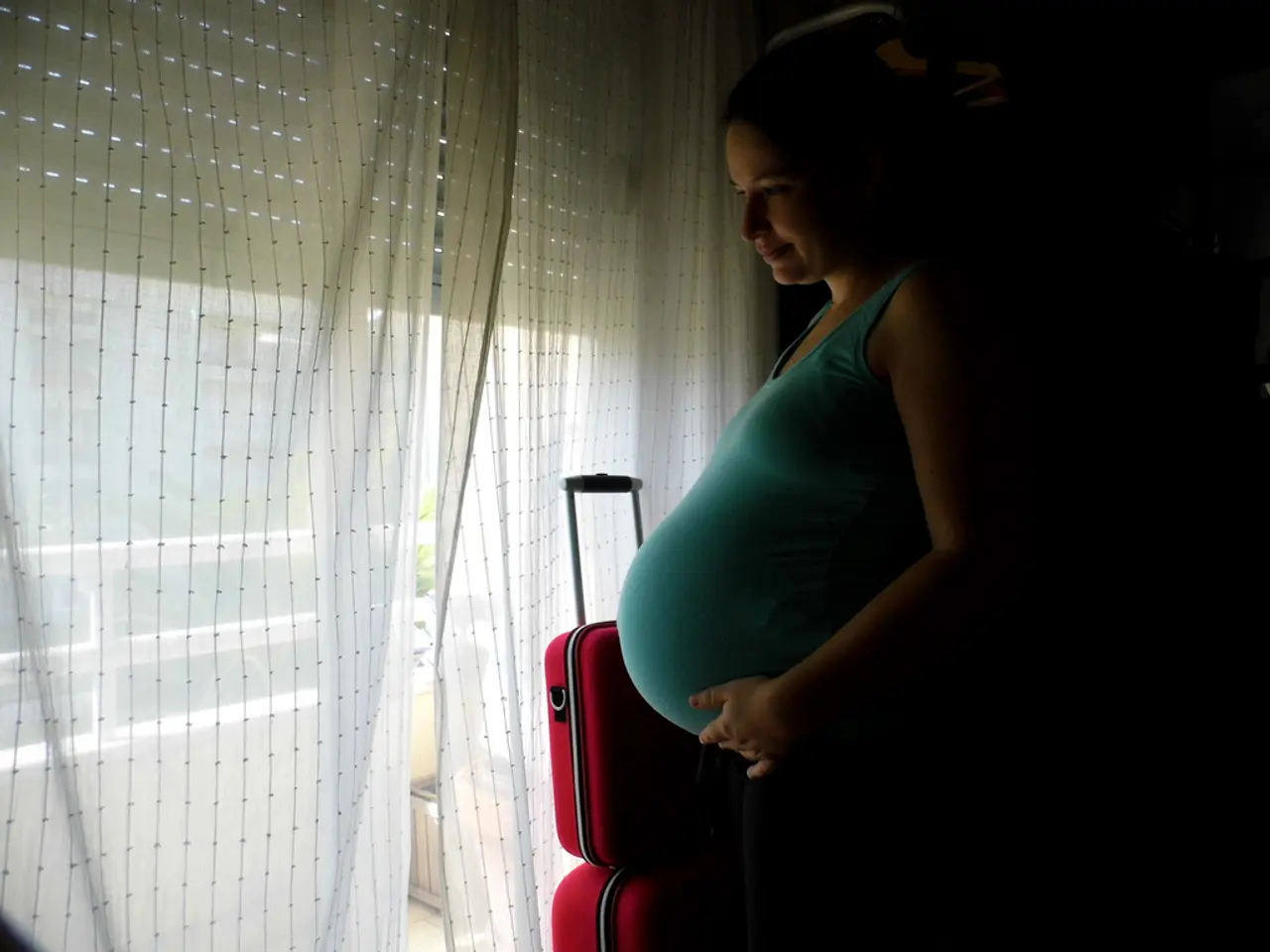Chromosomal irregularities can lead to miscarriages.
Chromosomal abnormalities, caused by errors in the number or structure of chromosomes, are a common issue in embryos and can lead to miscarriages[1][2][5]. These abnormalities disrupt the normal development of an embryo, often resulting in pregnancy loss before or shortly after implantation.
There are several types of chromosomal abnormalities that contribute to miscarriage, including aneuploidy (extra or missing chromosomes), blighted ovum (fertilized egg with no embryo formation), and molar pregnancies (abnormal growth of placental tissue due to abnormal chromosomal contributions)[2][4].
The mechanism involves the embryo’s inability to develop properly due to the genetic imbalance, which prevents normal cellular processes and organ formation. This can manifest as embryonic arrest or fetal demise, depending on the severity and type of chromosomal error[1][3].
Additional factors that may contribute to chromosome-related embryo arrest include oxidative stress damaging DNA and the sperm’s centrosome failing to properly separate chromosomes during cell division, increasing the risk of abnormal embryos[3].
The risk of chromosomal abnormalities in pregnancies increases with the age of the parents, particularly for women over 35 and men over 40[6]. Recurrent miscarriages can be linked to genetic issues in the parents, particularly if the chromosomal abnormalities are a recurring problem[7].
In such cases, genetic counselling is offered to couples who are high risk for chromosomal abnormalities or those who already had recurrent miscarriages due to certain genetic abnormalities. Opting for a different sperm or egg through In Vitro Fertilization (IVF) may be recommended to have a healthy baby[7].
It's important to note that miscarriages due to chromosomal abnormalities do not necessarily mean that the next pregnancy will also have the same issue. Taking care of certain lifestyle choices and staying away from toxic substances can reduce the chances of chromosomal abnormalities[8].
Testing of fetal tissue for abnormal chromosomes can be conducted after a miscarriage to study the genetic makeup and chromosomal structure to discover any factors that resulted in the miscarriage[3].
For couples experiencing recurrent miscarriages, it's essential to seek medical advice to understand the underlying causes and explore potential solutions. Understanding the role of chromosomal abnormalities in miscarriages can help couples make informed decisions about their reproductive health and future pregnancies.
[1] https://www.ncbi.nlm.nih.gov/pmc/articles/PMC5759249/ [2] https://www.ncbi.nlm.nih.gov/books/NBK532867/ [3] https://www.ncbi.nlm.nih.gov/pmc/articles/PMC6355203/ [4] https://www.ncbi.nlm.nih.gov/books/NBK532869/ [5] https://www.ncbi.nlm.nih.gov/pmc/articles/PMC2909947/ [6] https://www.ncbi.nlm.nih.gov/pmc/articles/PMC4255876/ [7] https://www.ncbi.nlm.nih.gov/pmc/articles/PMC6545886/ [8] https://www.ncbi.nlm.nih.gov/pmc/articles/PMC6355203/
- Science has shown that pregnancy loss can be caused by chromosomal abnormalities, such as aneuploidy and blighted ovum, in embryos.
- The wrong number or structure of chromosomes can lead to medical conditions like molar pregnancies, disrupting the normal development of an embryo.
- In some cases, these genetic imbalances can prevent proper cellular processes and organ formation, resulting in embryonic arrest or fetal demise.
- Factors like oxidative stress damaging DNA and the sperm’s centrosome failing to properly separate chromosomes during cell division can increase the risk of chromosomal abnormalities.
- Women over 35 and men over 40 are at a higher risk of having pregnancies with chromosomal abnormalities.
- Recurrent miscarriages may be linked to genetic issues in the parents, particularly if the chromosomal abnormalities are a recurring problem.
- Genetic counselling and the use of IVF with different sperm or egg donations may be recommended for couples who are high risk for chromosomal abnormalities or who have had recurrent miscarriages.
- Lifestyle choices and avoiding toxic substances can help reduce the chances of recurrent miscarriages related to chromosomal abnormalities.
- Testing of fetal tissue for abnormal chromosomes after a miscarriage can help reveal factors that contributed to the miscarriage, potentially informing future health and wellness decisions.




